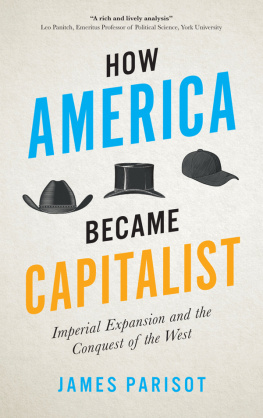Once more unto the breach, dear friend, once more
J R is a novel like no other novel, a singularity, a hands-down astonishment, an inferno, a Big Bang, a masterpiece. This introducer, asked to confine himself to a reasonable brevity, can in the pursuit of his introductory task do nothing but throw up his hands and assert the above that the novel is a novel like no other, a singularity, a Big Bang, a masterpiece. In wrestling with the sheer expanse of the thing, in fact, modalities thereof, the introducer despairs of giving the flavor of J R, of its polyphonies and musicalities, its myriad intertextualities (all of which are meticulously cross-referenced at The Gaddis Annotations, online, a resource that the man himself would probably have found admirably, if outrageously, comprehensive). The introducer can but despair here, accept defeat, and retreat in the process to the safe haven of personal experience, because, when faced with the scale of critical exegesis that swirls around Gaddis, the personal is rarer. And so: My personal experiences it must be said do in fact involve episodes in which other writers warned me away from J R, owing to its occult and unjustified reputation for difficulty. J R is too difficult, too demanding, someone or some several someones reductively remarked to this introducer. Or: if one had to read a Gaddis novel, one should read The Recognitions. I did, I read The Recogntions, I devoured it, loved it in an unrestrained and slightly evangelical way, and yet in the completion ofthat reading experience, that encyclopedic reading experience, I rooted around for another challenge, J R, however, sat on the shelf for a while longer, until, in my early twenties, I elected to disregard all advice, and opened a paperback edition of J R and began. And why exactly? Because a challenge is a satisfying thing? Well, even more potently, I had consumed a Writers at Work interview with Gaddis, in which the author was asked by a Hungarian critic (I am reconstructing), a critic bent on a certain prismatic distortion of the work, What does J R stand for? To which Gaddis responded briefly, Its an abbreviation for Junior. This exchange moved me in profound and significant ways, the admirable plainness of the response, likewise Gaddis s general resistance to simplistic interpretation and influence-peddling. And this was not all that moved me. I was also moved by J R himself, as described by Gaddis in the interview and in other public settings, J R, whose pre-pubescent malfeasance, whose moral bankruptcy, is wholly charming and oddly admirable and perfectly adolescent. J R Vansant could not seem more plausible and emotionally satisfying and true these days, in this Madoff-esque present. The authors love for his creation, likewise the sense of committedness as to the scale of J R, and to making work that is resistant to easy reading and conventional expectations, all of this was enough to induce the introducer to overcome his cowardice and open the novel you have before you, only to find immediately, instantaneously, in even the first pages that J R was not, in particular, difficult at all. J R was, and is, hugely, riotously entertaining. I would like to reiterate this point as it is my most legitimate idea herethe book is entertaining and not difficult at all. It is entertaining because it is hilarious in ways both high and low, because it has found a route into the rotting heart of all that is American, which is to say American capitalism; it is entertaining because it strains against realisms limitations with cunning and malice aforethought; it is entertaining because in addition to its anarchy it has a certain dystopian justice lurking in it. And whereas these themes money, powerlessness, and the importance of art in bad circumstances would turn up in later works by Gaddis in, for example, A Frolic of His Own, which mainly concerns the legal apparatuses of American life in no other work of Gaddis is the lancet as sharp as here. I, who (like you) loves to read because I love to read (and this is life enough for me), consumed J R as if life were happening nowhere else. I consumed it, in great preoccupied fits, fifty or seventy-five pages at a clip, and I was very ecstatically happy doing so, and the dialogue, the slew of voices swept over me, the operatic mayhem of J Rs method. I was, in those weeks, in aesthetic bliss, though I had a job at which I was meant to be reading other things, manuscripts by other writers. I, the introducer, can therefore attest that if you make as to replace food, sleep, and society with J R, you can in fact be satisfied with the result, not because it is some web of intricate literary allusions that will gauze up your consciousness, but because the book is so overstuffed with invention as to be an act of great joy, even as it despairs about money and the influence ofthat evil. Yes, the action at J Rs core is by now well-known: an eleven-year-old boy with modest prospects and a challenging home life creates a gigantic stock- swindling financial empire. And around him, meanwhile, circumambulates a number of other failed personages, such as the professionals of his school, and the family of one particular music instructor, whose struggles with money serve as a foil narrative to J Rs own. And yet plot summary will do little to suggest the comic scale of J R Vansants attendant rise and fall, however, nor will it do justice to the richnesses of character in this work, much broadened and deepened in the exacting particularities of voice. If, next to God, Shakespeare created most, Gaddis runs a strong third, with especial skill in reproducing what is completely personal, particularly human, in the speech of men and women, so that the surface of J R is composed of just that, the music of individual tongues, each distinguishable (despite the legendary lack of attributions) through the syntactical habits of the person in question, except where it is unimportant who is talking, which is occasionally the case, because in truth it is the community that is doing the talking, it is the nation talking, it is the money talking. Still, you can always pick up (for example) the slangy Long Island cherub talk of J R himself, and in our deracinated present, in which the contemporary voice of fiction has a certain sound, a certain present-tense reliance on simple sentences, on noun verb noun verb noun verb noun verb, Gaddiss route forward, in J R, away from the encyclopedic third person of The Recognitions into the riot of colloquialisms of J R himself, feels far more contemporary, far more illustrative of the language in all its riches, than the cool veneer of contemporary naturalism. As always, methodologically, Gaddis was way ahead of his time. How did the book come to be composed in this way? It would be possible to posit so many arguments! It is not exactly the case that The Recognitions readily attained the literary reputation it deserved during its early life (see Fire the Bastards by Jack Green for more here), and yet Gaddis managed somehow to follow that astounding achievement with one equally arresting, despite neglect. It took him fifteen years. The reading public was not clamoring for J R, the author himself noted. Solvency necessitated odd jobs, many in the corporate realm, in order to finance Gaddiss assault on the notion of finance. (How different a writer Gaddis might have been if instead hed resorted to a tenure-track job in a writing program.) Gaddiss travels in the underworld, which is to say the world of international corporate capital, made










